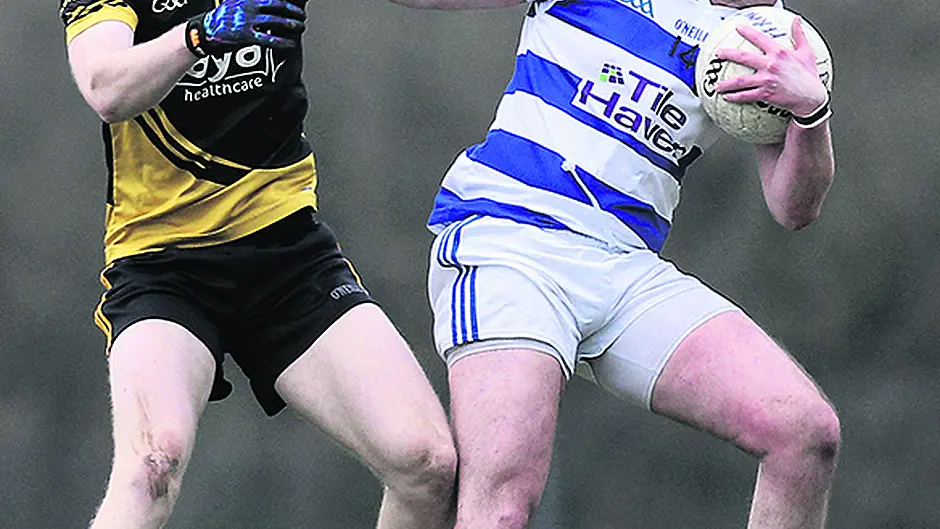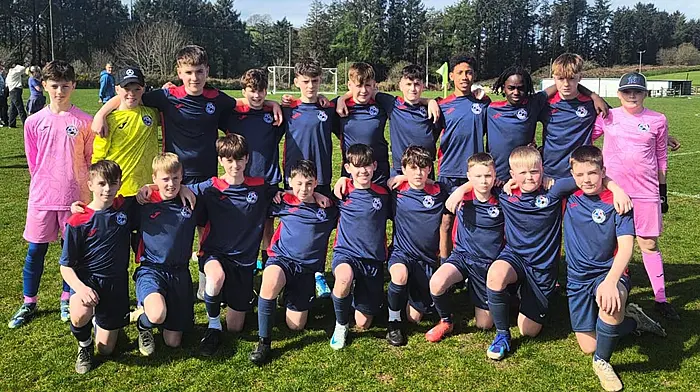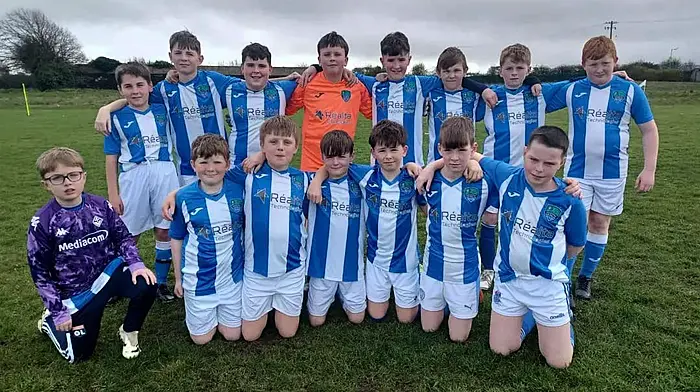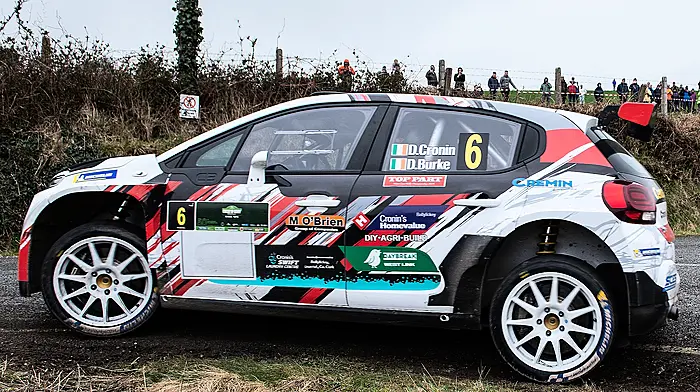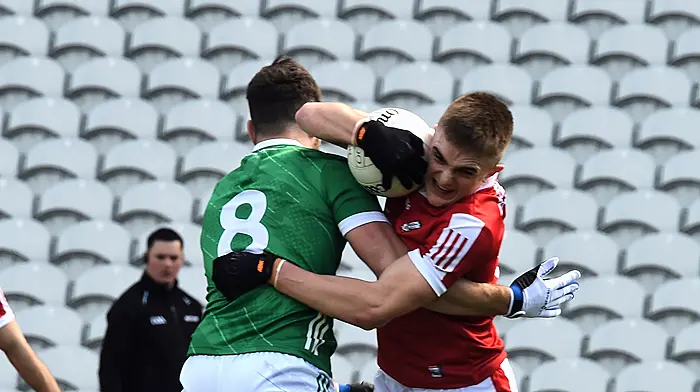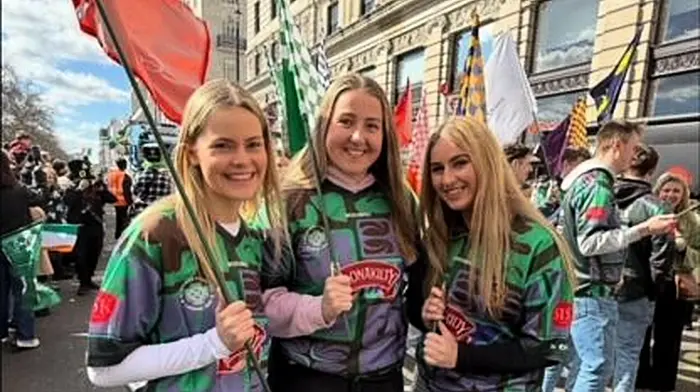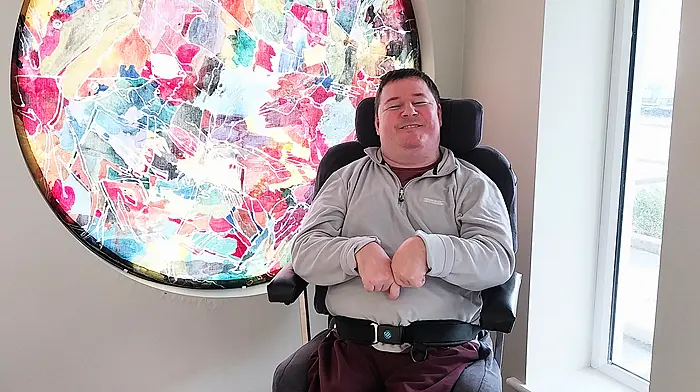Potential heavyweight clashes between Castlehaven, Carbery Rangers, Valley Rovers and either Ballincollig or O'Donovan Rossa
DENIS HURLEY COLUMN
**********
WITH all but one of the county senior football first-round games played, a picture of round 2 is emerging and it’s not exactly heartening for the sides who have lost their first outing.
The meeting of Ballincollig and O’Donovan Rossa on Sunday, May 5th (Rossa beat Clyda Rovers in the preliminary round) will bring to an end the opening round and leave us with ten teams in round two. However, far from being a gentle way back into contention for teams who had an off-day, there will be sharks to avoid.
When Nemo Rangers were paired with Valley Rovers – quarter-finalists in the past two campaigns – there was a certainty that there would be one heavy hitter in there, but defeats for Castlehaven and Carbery Rangers to Fermoy and Ilen Rovers respectively have struck a note of fear. With Ballincollig or Skibb also in that draw, there is the potential for some tense tussles between teams otherwise expected to be in the mix later in the year.
Technically, of course, they will still be in the championship until late July or August, but there is a difference this time round. Previously, the round 2 draws would take place at the county convention in December, meaning that losing teams knew who they would be up against and could prepare accordingly. This time round, those draws have been deferred and won’t be made until the county board meeting on Tuesday, May 28th, when the draws for the third round will also be decided.
It makes for a strange dynamic as teams spend the next month or so training and playing league matches without knowing who they will face next, but the blank-canvas nature of it may be a help to some sides who feel that they didn’t do themselves justice in the first round.
Away from on-field action, we’re sure that events at the FAI over the past few weeks will leave those involved in GAA administration feeling relieved that, for all its flaws, the organisation is run on properly democratic grounds.
It would be almost impossible for any individual to garner the power that John Delaney managed to assemble, simply because of the nature of progression of officers in the GAA – from club to county to province to national level – and the term-limits imposed on positions.
From time to time (or, unfortunately, more often) there may be awful bad decisions made or the director general may put his foot in it, as Tom Ryan did with his comments on the Liam Miller game, but the person in that role is never allowed to treat the association as a plaything.
While we may lament the fact that local interest often stymies progress and evolution in the GAA, it’s that loyalty to home, often bubbling just below the surface, which means that a powerful figure is unable to assemble a base of lackies who will grease the wheels of his surge towards an impregnable position.
On top of that, there is a disconnect in the running of soccer that isn’t apparent, or as apparent, in the GAA. The FAI is seen as a monolith, running for its own good, independent of the clubs around the country, whereas the clubs and counties are the GAA and it is them. Certainly, every so often, delegates at meetings will lament the fact that faceless bureaucrats have taken power but that is scaremongering and the units of the GAA still retain the power to make change.
Contrast that with soccer, where John Delaney once referred to the League of Ireland as the FAI’s ‘problem child’. Cork City manager John Caulfield has often spoken of how, in his time in charge, the managers of the league clubs have never been called together to give their views on how positive steps can be taken towards improving the product and its image.
This isn’t intended as a takedown of all of soccer’s ills from a bitter GAA quarter – we have as much loyalty to the former as the latter. However, as the last few weeks have shown, the FAI is run on a top-down basis. The GAA is not perfect and we could have filled a few columns listing the ways in which one would go about putting things right, but it still retains the sense of equity in terms of attaining high office. Most importantly, that high office cannot be clung on to indefinitely.

